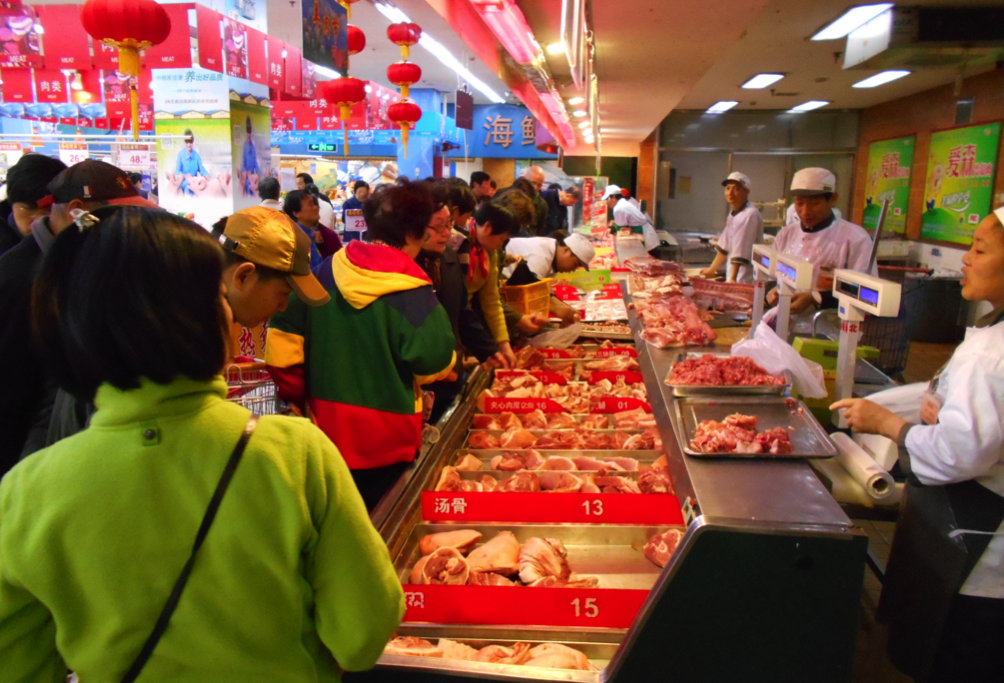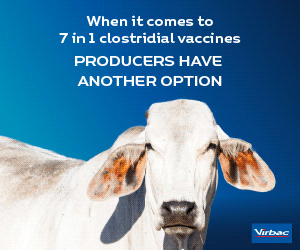
THE United States and China are about to start a temporary truce in their trade war, agreeing to reduce tariffs in both directions for 90 days.
As things currently stand, total duties on US beef into China are 147pc, with US pork 172pc. But for the next 90 days, starting tomorrow, China has agreed to reduce reciprocal tariffs on US products to 10pc, while the US has responded with a reduction to 30c, from 145pc.
However total Chinese tariffs on US beef will from tomorrow be 32pc, with pork on 57pc. The new tariff level includes three components: a 10pc retaliation for the US fentanyl tariffs; the 10pc reciprocal retaliation tariff; and the 12pc tariff under the most-favored-nation (MFN) agreement, bringing the total tariff on US beef to 32pc.
Some media have misinterpreted the overnight announcement to mean that the US now faces a China beef tariff totalling only 10pc. That is incorrect.
Under the current extreme tariff regime ending tomorrow, US beef exports to China have virtually halted, leaving a huge void for Australian and New Zealand imported beef to fill.
“China’s remaining duties still place US beef and pork at a significant disadvantage,” the US Meat Exporters Federation said overnight.
“However, the reductions could accommodate some trade during the 90-day period as further negotiations take place,” it said.
In a statement, USMEF said although this was a temporary pause, it was hopeful that it was the first step toward restoring access to China for US pork and beef.
At the same time that US beef will be tariffed into China at 32pc for the next three months, Brazilian beef entering the China market is subject to a 12pc tariff, and Australia, zero percent – at least until we hit the Safeguard tariff level later this year, when we revert to 12pc for the remainder of the calendar year.
As Beef Central wrote earlier, that’s likely to happen earlier than normal this year, because of recent diversion of product into China.
US prices still prohibitive for Chinese customers
A prominent Australian meat trader told Beef Central this morning that a 32pc tariff level on US beef into China – on top of a product that was already expensive, due to US cattle supply shortage – meant it was unlikely there would be any significant US beef trade into China for the time being.
 “145pc or 32pc – the tariff is still prohibitive highly to have any real impact on US beef trade into China,” he said.
“145pc or 32pc – the tariff is still prohibitive highly to have any real impact on US beef trade into China,” he said.
“And this announcement represents only a 90-day truce. That’s not long, in the export meat trade business cycle. At best, it might be interpreted that this is a sign of confidence that the US and China might now get their issues resolved, but Trump is so erratic, it could revert to previous levels in a heartbeat.”
Others might interpret the overnight announcement as a sign of weakness in the US position, because China insisted it would not enter into dialogue until the reciprocal tariffs were lifted, he said. “You’d almost say the Chinese got their way on that.”
Financial markets in the US have responded favourably to the tariff news overnight, and if nothing else, the development might help lift US consumer confidence a little, likely reflected in beef demand.
At the same time, US beef supply continues to tighten, with reports this week of some US packers now running plants only four days a week due to lack of supply. Last week’s national US cattle slaughter reached 559,000 head, down 9.3pc on last year.
US beef plants remain locked-out
Almost regardless of the tariff level, the bigger issue for US beef exporters is the delays in renewal of registrations for US processing plants wishing to access the China market. More than 300 US plants have seen their China registrations lapse this year, with no sign of renewal yet by China.
USMEF overnight said it understood that China has now updated US pork facilities that had expired in the month of April. But most of the pork trade is in minor items like feet and heads. Most of the US beef production facilities expired on March 16 and there have not yet been any updates for the beef establishments, in terms of China acess.
This means the majority of US beef production remains ineligible for China – regardless of tariffs.
New US-UK trade deal overlooks key HGP issue on beef
Meanwhile a trade deal with the United Kingdom announced in grandiose terms by the Trump administration a few days ago provided only limited details about what the agreement will achieve.
The agreement would “open up the British market to American beef, ethanol, and other agricultural products,” the White House said. In response, British cars and steel would get better access to the US market, with the tariff declining from 27.5pc to 10pc.
In a fact sheet the Washington administration said the deal was “historic” and “a great deal for America.”
The two countries agreed to greater market access for each other’s beef, with both nations able to export 13,000t of beef to each others’ countries, tariff-free.
The UK would “reduce or eliminate non-tariff barriers to US exports”, the White House said, though it did not provide details.
However the UK has since stressed that US beef imports would still be subject to the UK’s strict no-HGP policy, greatly limiting potential US beef trade volume.
UK Government sources insisted imports of HGP-treated beef or chlorinated chicken, previously described as non-negotiables for the UK in any agreement – would remain out of bounds.
The UK Government said there would be no drop in food standards as a result of the deal.
Under the agreement, the US will maintain the 10pc duty on nearly all imports from the UK, which Trump imposed on April 2. There had been some speculation that the tariff would be dropped as part of any trade deal, but Trump suggested the 10pc universal duty was likely to be a floor in any future talks with other countries.
The UK’s National Farmers’ Union said it was asking the government to provide more details on how checks would work to ensure food safety standards were maintained.
“The rules on food standards have not changed and they will not change as a result of the deal,” said UK Chief Secretary to the Treasury Darren Jones.
He said the agencies responsible for border safety checks would be able to test meat for traces of added hormone with consequences for anyone breaking the law.
The UK (as part of the European Union) stopped allowing HGP-produced beef in 1989, when the practice was banned across the EU after questionable science declared it unsafe.

HAVE YOUR SAY